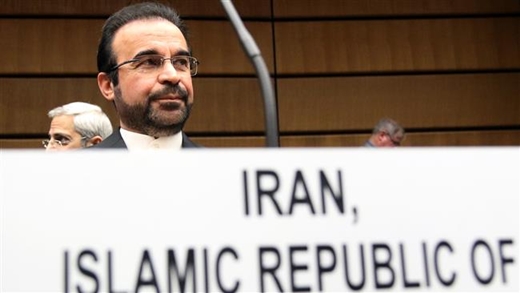Iran has warned the International Atomic Energy Agency (IAEA) of the repercussions of disclosing to the US Senate the confidential data on the recently signed roadmap between Tehran and the UN nuclear agency.
Reza Najafi, the Iranian ambassador to the IAEA, told IRNA on Saturday that the confidential texts between Iran and the IAEA have not even been provided to the US government and can certainly not be given to the Senate either.
“Definitely, the agreements between a country and the [UN] agency, which are classified, can by no means be presented to any other country,” Najafi said.
IAEA Director General Yukiya Amano is set to travel to Washington next week to meet with members of the US Senate Committee on Foreign Relations to speak about the agency’s role in verifying and monitoring nuclear-related measures in Iran.
On July 14, Iran and the IAEA signed a roadmap in the Austrian city of Vienna for “the clarification of past and present issues” regarding Iran’s nuclear program.
After signing the agreement, Amano said the roadmap “sets out a clear sequence of activities over the coming months, including the provision by Iran of explanations regarding outstanding issues.”
He added that the roadmap enables the IAEA to “issue a report setting out the agency’s final assessment of possible military dimensions to Iran’s nuclear program, for the action of the IAEA Board of Governors, by 15 December 2015.”
The signing of the agreement came on the same day that Iran and P5+1– the United States, Britain, France, China and Russia plus Germany – finalized the text of an agreement, dubbed the Joint Comprehensive Plan of Action (JCPOA), in Vienna.
Under JCPOA, limits are put on Iran’s nuclear activities in exchange for a set of commitments by P5+1, including the removal of all economic and financial sanctions against the Islamic Republic.
Some members of the US Congress have asked that more information be made public on the IAEA’s role in verifying Iran’s implementation of the agreement.
